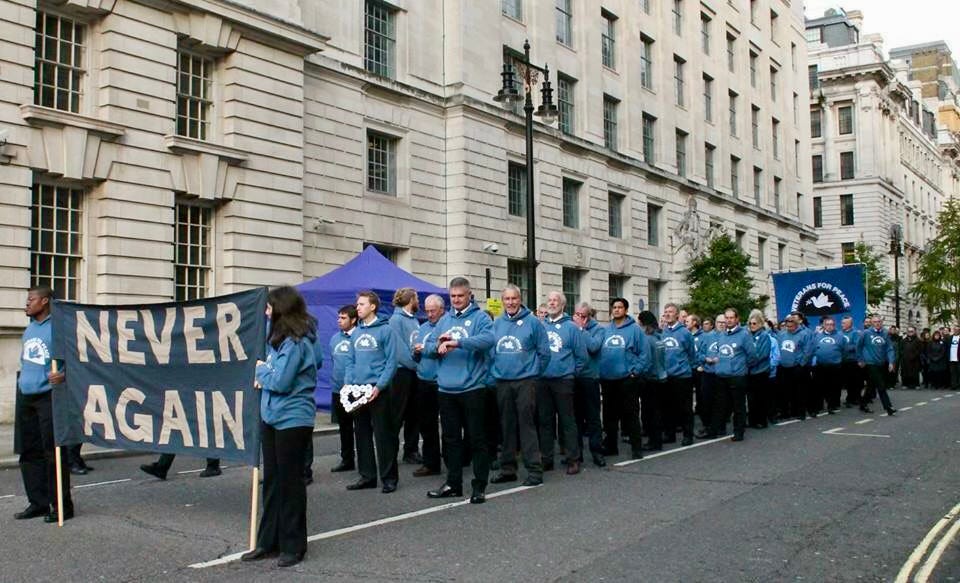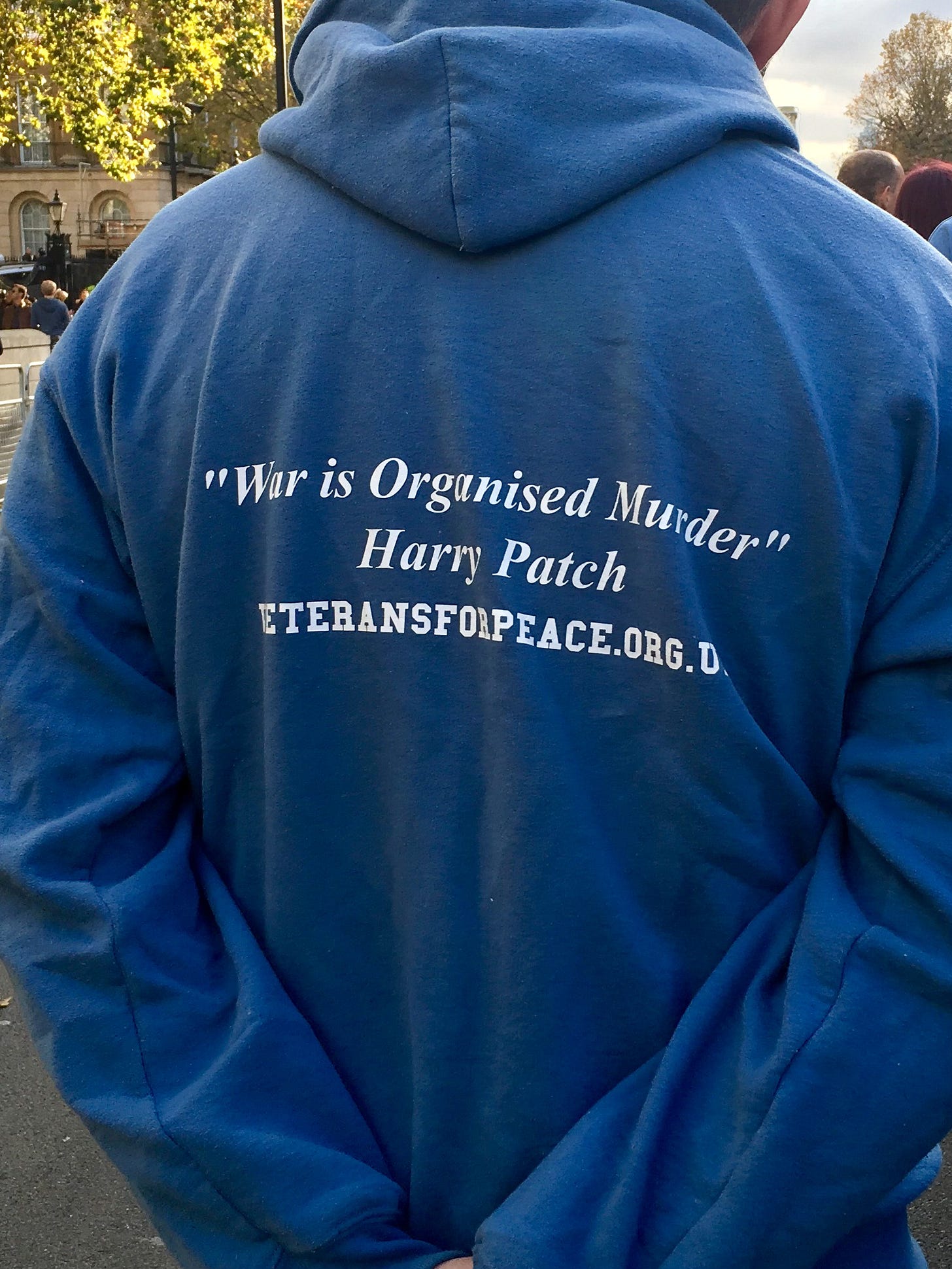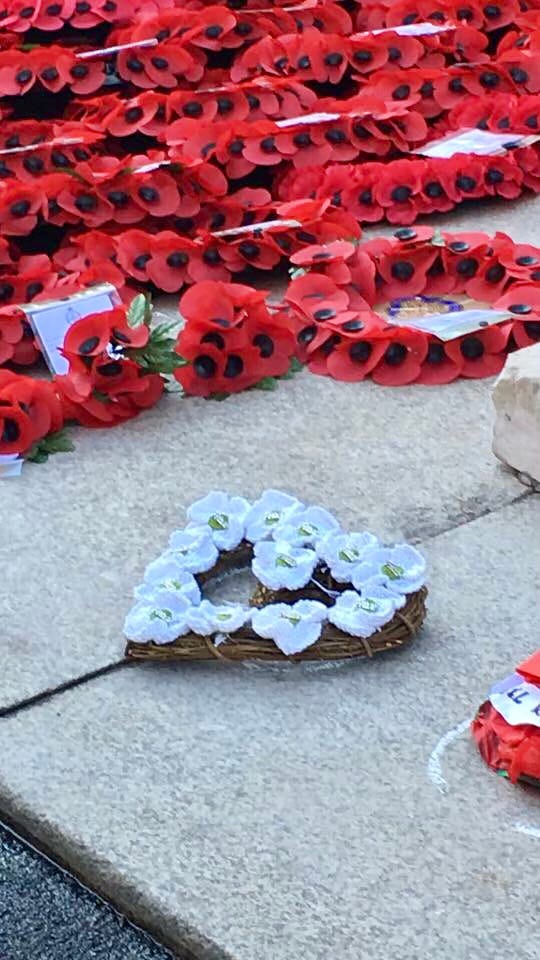
In 1954, the US Congress renamed Armistice Day to Veterans Day. The stated reason was to remember all generations of US veterans, not just veterans from the First World War. Congress advanced this rationale on the disingenuous notion that Armistice Day's purpose was a celebration of veterans. It was not. Armistice Day's purpose was to serve as a reminder of the horrors of the First World War and carry forward the declaration of those veterans of Never Again.
For a US government implementing a militarized Cold War foreign policy in 1954, a reconciliation-based holiday was inconvenient and problematic. A holiday celebrating veterans would present no critique of war or advocacy of peace; it would do the opposite. As we have seen repeatedly since 1954, Veterans Day and other aspects of "support the troops" rhetoric have been used to shout down dissent towards American wars in Vietnam, Afghanistan and Iraq and suppress criticism of America's massive overseas military empire and gargantuan Pentagon budgets. The veneration of veterans, almost always obligatorily referred to as heroes, became quasi-deification. In my life, I have seen my military service elevated to near clerical levels, reflecting a pseudo-religious treatment of America's military caste, best exemplified by the reflexive and ritual-like statements of "thank you for your service." The political calculus behind the name change was correct.
The militarized foreign policy of the Cold War did not just remain when the Cold War ended but became turbo-charged. The results of that militarized foreign policy have been disastrous for US national security and worldwide stability. The tremendous suffering of entire nations of people, as well as American veterans and their families, cannot be overstated.
Our celebration of war that accompanies each annual Veterans Day is reflected yearlong through our politics, news media, Hollywood, and education system. The consequences of this militarization do not stop with the death and destruction from the instability and wars but include the growth of a ravenous military-industrial complex, a Leviathan, at the expense of our economy and society. With 60% of the federal discretionary budget going to the Pentagon, military contractors and to pay the costs of past wars, the opportunity costs to American communities who are told there is not enough money for healthcare, education, environmental protection and other needs are severe.
That change from Armistice Day to Veterans Day in 1954 signaled a conversion of the American government and its purposes. While the US was an empire before the Second World War, the victory in 1945 created an America that was The Empire. We have been reaping the consequences of that transformation ever since.
Imagine what would be now if, rather than policies derived from a jingoistic narrative of good wars and honorable slaughters, we had preceded with the wisdom of those men from 1918 and followed their admonition of Never Again. Returning to Armistice Day would not simply restore the holiday's original name but would signal a commitment to peace, stability, prosperity, and hope for future generations. As we endure veteran suicide epidemics, bear a hollow economy and fragile communities, witness our government direct and contribute to the great and unholy carnage in Africa, the Middle East, and Eastern Europe, and recognize the twin existential catastrophes of nuclear war and climate change, what Armistice Day can represent does not sound simply aspirational but entirely necessary.






They should have changed the name to "Never Again" Day, Matt. Because, as you say, that's really what Armistice Day was originally about.
Nice Article.